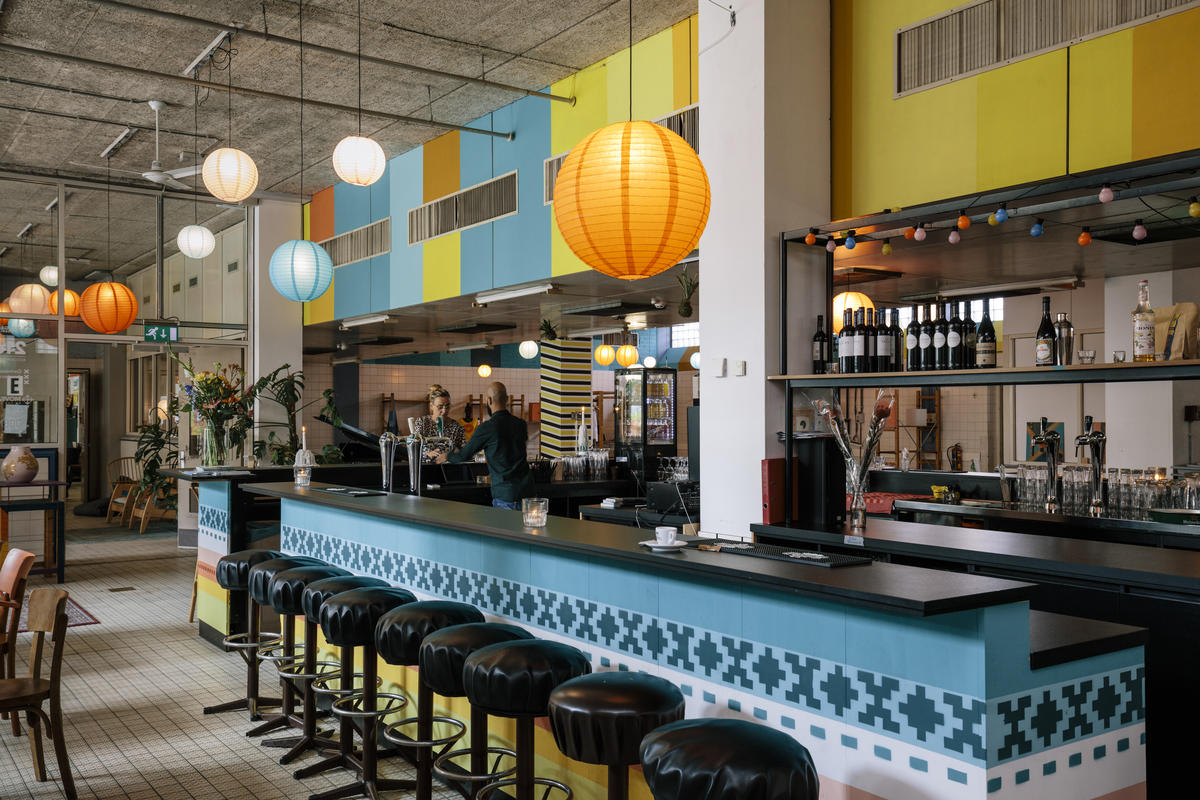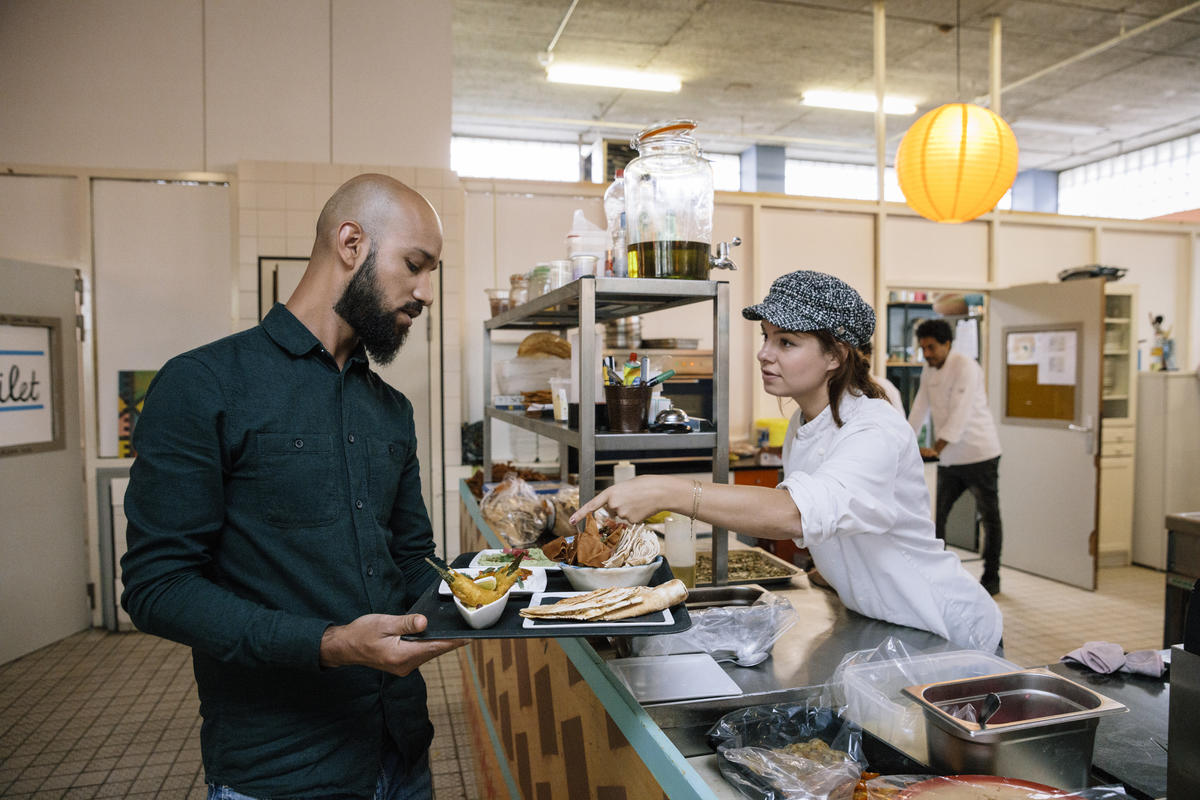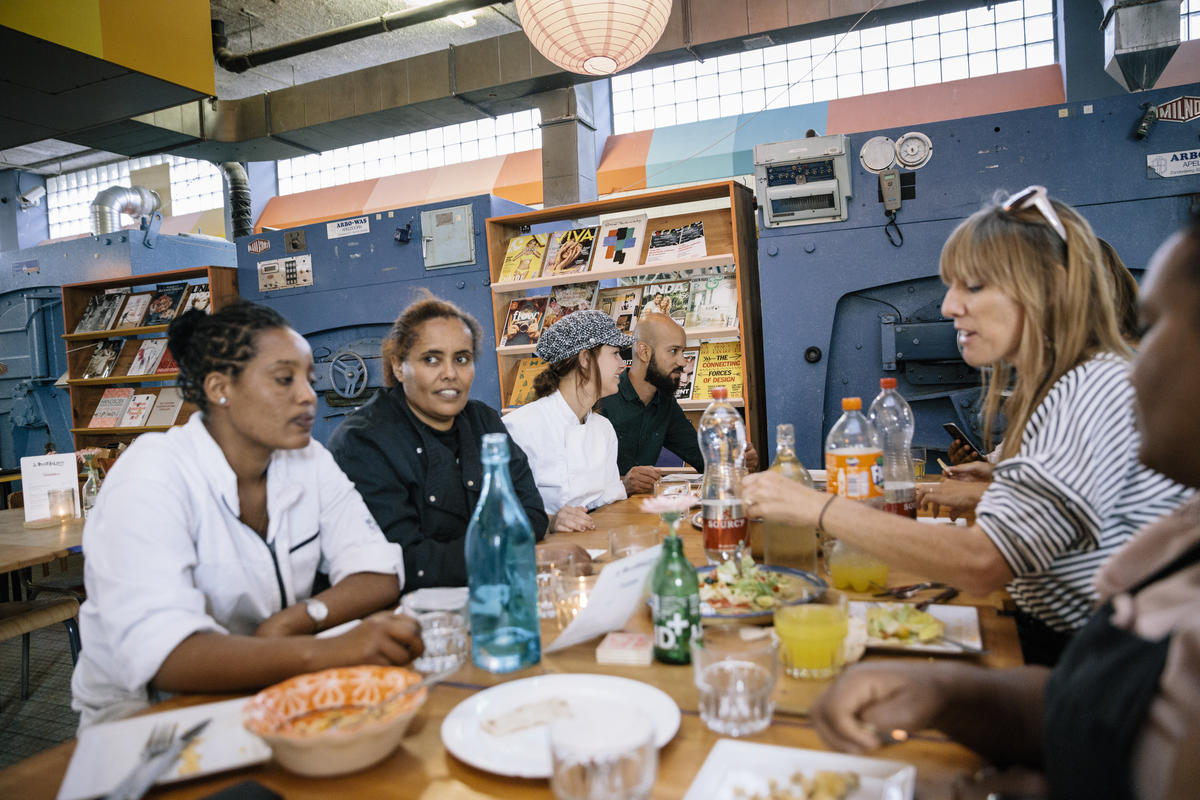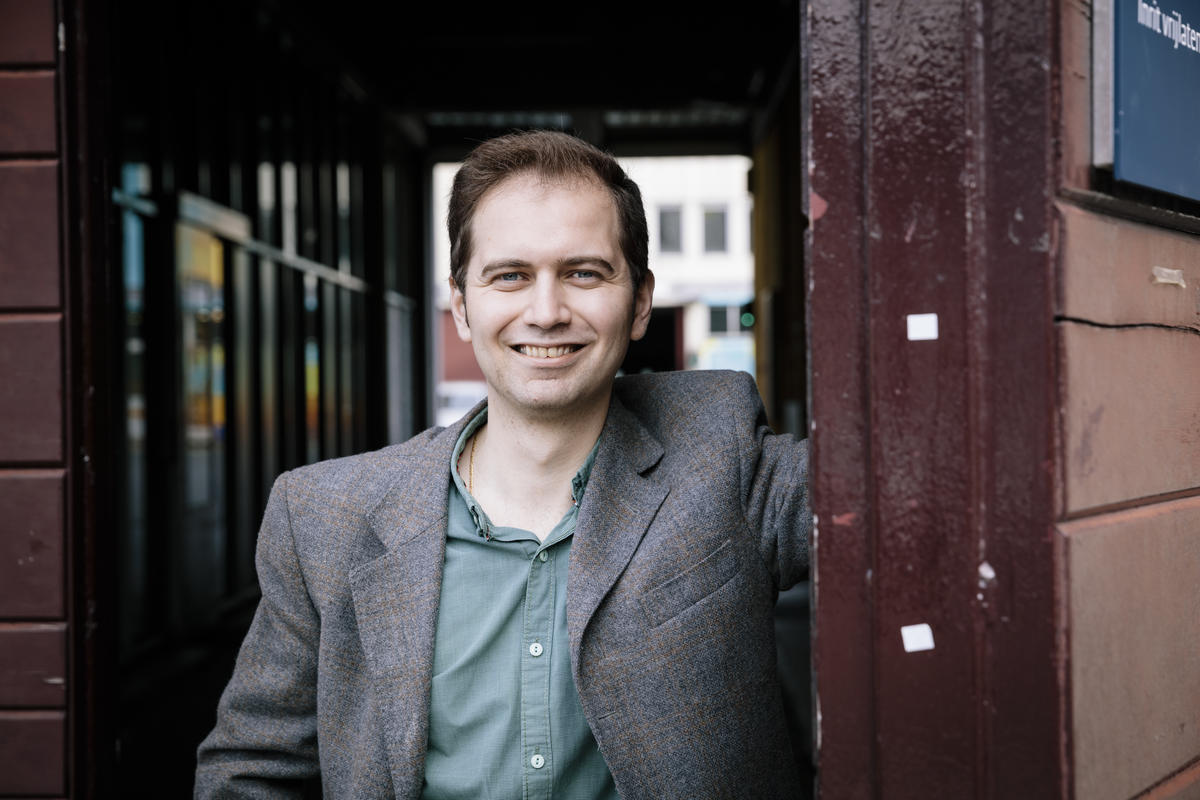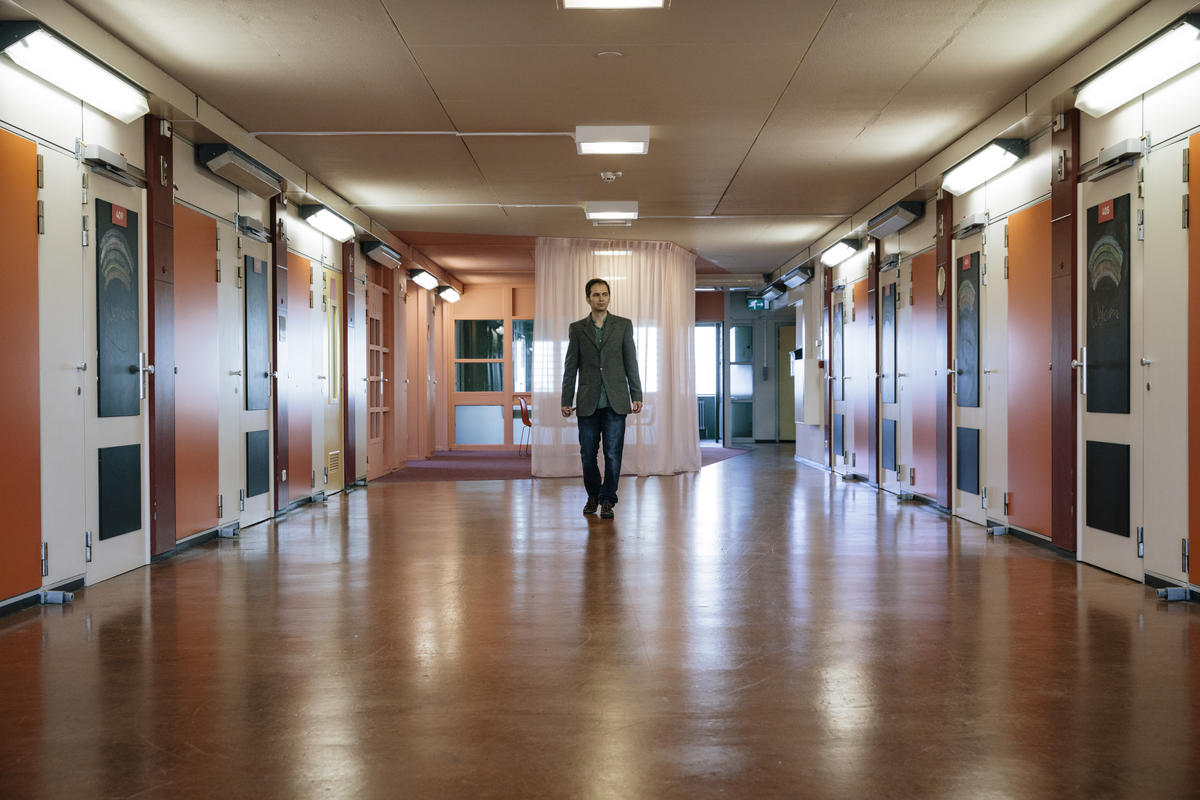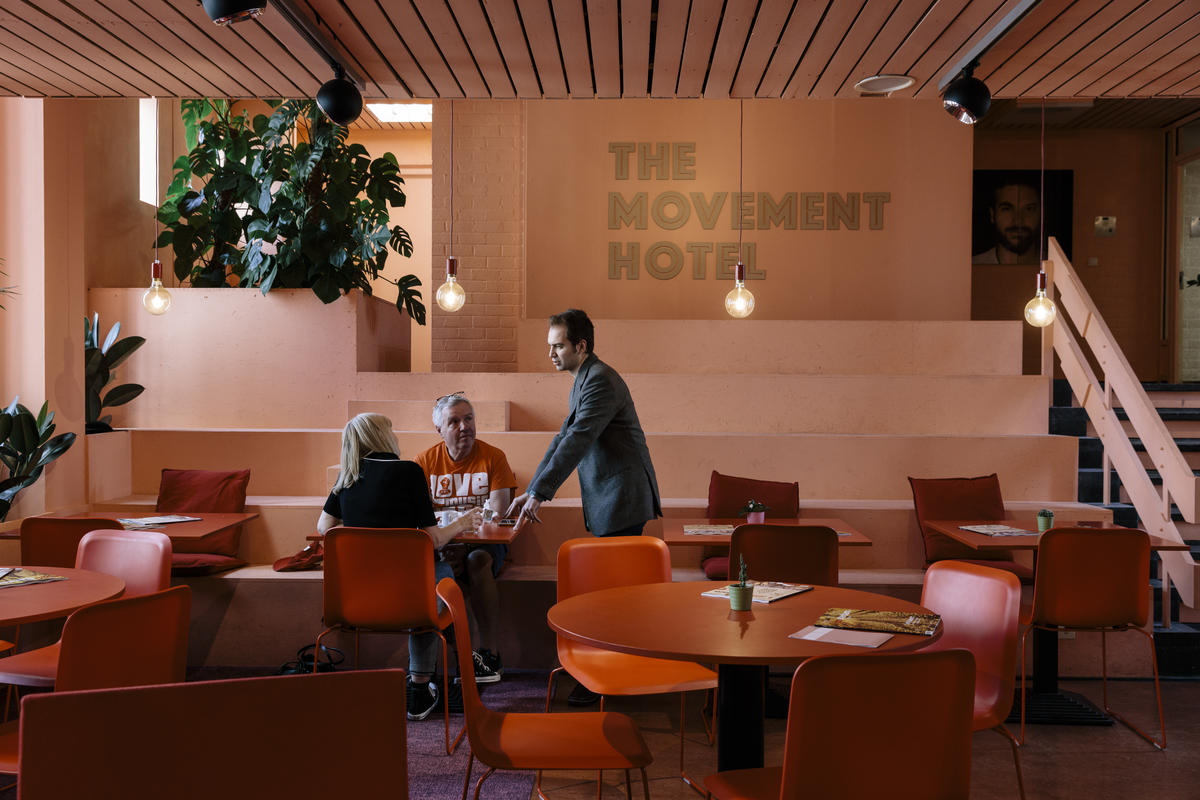Imaginative use of former prison opens new doors for refugees

Imaginative use of former prison opens new doors for refugees
Receptionist Wassim Al Wattar jangled his keys as he strolled down the hotel corridor. He stopped outside a heavy door, unlocked it and tugged it open with a clank. Daylight streamed through barred windows on to two austere beds in an otherwise bare room. A train trundled past outside.
If it felt like a prison cell, that is because it once was one, part of a notorious former prison in southern Amsterdam. After the prison closed in 2016, it become a successful pop-up hotel run by refugees, until it shut up shop a few weeks ago.
“Guests loved it because it’s different,” said Wassim, a Syrian refugee who once a week manned reception at the Movement Hotel in the Bijlmerbajes, a notorious former prison in southern Amsterdam, until the doors of the pop-up project closed recently. “Every day it’s new experiences, new people, new stories.”
An experience it was. Reception two floors below once served as the prison guard’s recreation room. Bright pink walls could not fully dispel the sinking feeling of checking into a tower block that for four decades housed some of the Netherlands’ most hardened criminals.
After the prison closed in 2016, five of the six towers were used as a temporary shelter for asylum seekers. Dismayed at this less-than-ideal solution, Dutch non-governmental organization Movement on the Ground began looking for a way to give new life to the desolate buildings. A pop-up hotel run by refugee staff, it decided, would do just that. Even better, it could also help lead to new jobs for the newcomers.
“We wanted to attract people instead of pushing them away,” said Nina Schmitz, managing director of Movement on the Ground. “We said let’s see if we can turn this place from a black spot into a bright spot.”
More than 50 refugees worked at the hotel after it opened in September 2017. Staff received hospitality training and the local experience they needed to land a job in Amsterdam’s booming tourism industry. Wassim, for one, is hoping the experience will boost his job prospects.
“Everybody wants to spend the night in jail just for fun.”
“My skills have been refreshed, I’ve learned a lot,” said Wassim, 28, who until recently divided his time between the hotel, shifts at a fast food restaurant and freelance photography. The best thing about the hotel was that the guests often learned just as much as the staff.
“It was a multicultural meeting place,” said Wassim. “Some guests came for an experience. Others because they wanted to feel comfortable with the people who work here.”
“Everybody wants to spend the night in jail just for fun,” agreed Nina. “But once the guests have arrived and seen it all, they started asking the staff questions about their stories. This is where the real integration happened, right here in this hotel lobby.”
Similar meetings are still taking place just across the prison yard, in a refugee-run restaurant, called A Beautiful Mess, which remains open.
The restaurant is housed in the former prison’s laundry room and along the wall stands a row of industrial washing and drying machines.
Floor manager Hayder Al Saadi froths milk for a cappuccino behind the bar. “People are curious,” he says. “They come to wander around and take photos. Others hear we are refugees and they want to meet us and taste our food. Then they see, yes, I am a refugee, but I’m also just a normal person.”
“I really wanted to find a job as soon as possible to provide for myself.”
Like the hotel, the restaurant was designed to draw people to the site and give newcomers a foothold in catering. For 30-year-old Hayder, the project by Dutch non-governmental organization Refugee Company has done much more than that. Originally from Baghdad, he initially struggled to find his feet after he arrived in the Netherlands in 2015.
“There’s been a lot of change in my life through this project,” said Hayder, who first joined what was then a small pop-up café as a trainee barista last spring. “I’ve been growing since the day I started here. But it didn’t only come from me. It’s the trust I’ve received from the people here, the care, the space they’ve given me. This makes the difference.”
Hayder had run his own café in Iraq, but soon found he had a lot to learn about hospitality in the Netherlands. Everything was different, from dealing with suppliers, to the way people took their coffee. After a few months, his hard work paid off. When the café evolved into a restaurant last summer, the team offered him a full-time job.
“That was a big wish for me,” said Hayder, who was relieved to be self-sufficient instead of relying on the Dutch authorities for support. “I really wanted to find a job as soon as possible to provide for myself.”
A year on, Hayder is so entrenched in the running of the restaurant that he is able to train others. Every few weeks, he and the floor team train up a new cohort of waiting staff with varying levels of experience. Another 20 train in the kitchen, serving up a selection of Middle Eastern and African dishes.
As with the hotel, the restaurant has been a great success with residents and tourists, with its tables filled four nights a week. Yet both projects are only temporary. With the last asylum seekers now rehoused, the prison towers are set to be demolished to make way for housing. One thing is clear: with their innovative use of empty space, both projects have helped countless newcomers like Wassim and Hayder on their way.
“It’s an amazing feeling to receive such help from people in Amsterdam,” said Hayder, who hopes to continue working in the restaurant if it moves to a new venue next summer. “It makes you feel like the door is open to you.”

